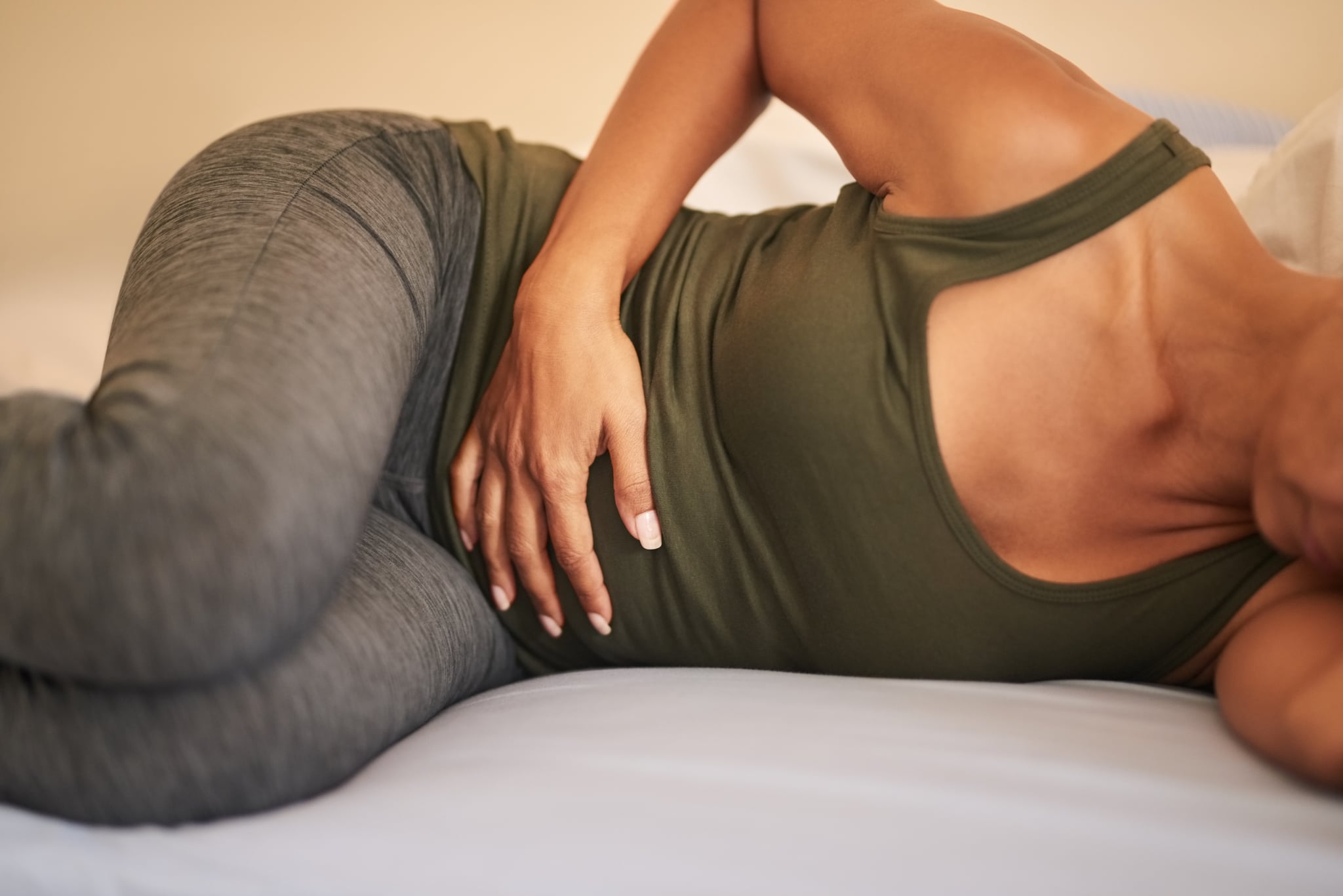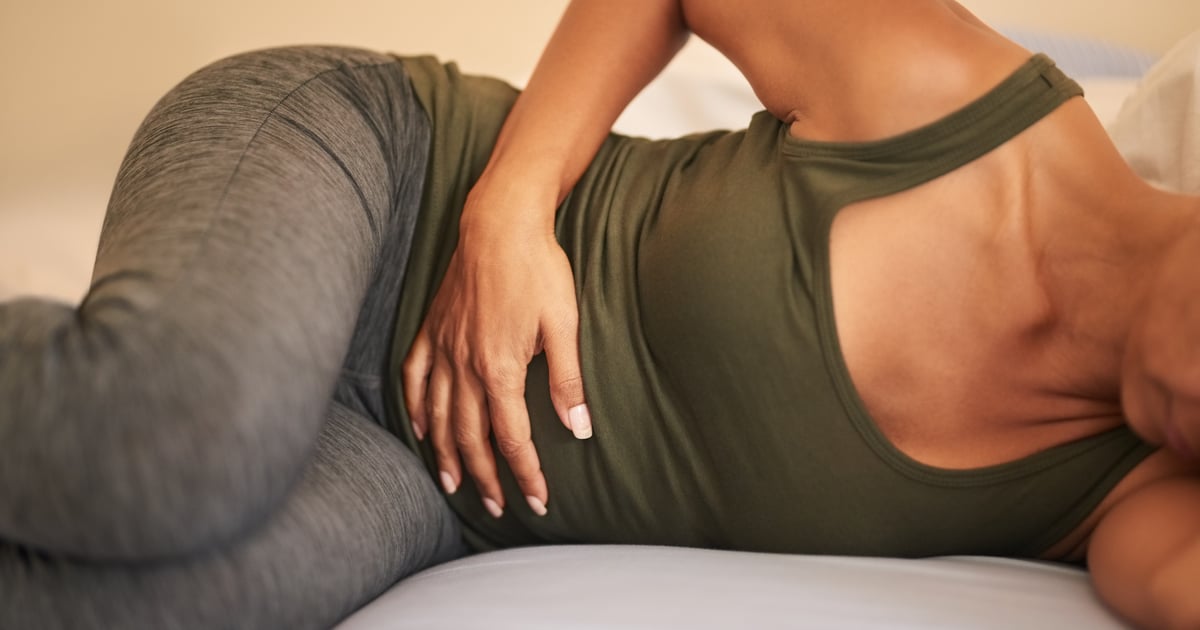Products You May Like

Everyone’s period is slightly different, and odds are, you have a good sense of what’s normal for you. But when things start to deviate outside the norm — like a period that starts and stops — it’s understandable to have questions. But before you panic-google “my period stopped and then started again two days later,” there are a few things you should consider.
For starters, there’s a range of normal when it comes to periods, and even something that’s kind of jarring, like having your period stopping and starting, can fall into that category. “It’s absolutely normal for someone’s period to stop and start occasionally,” says Meleen Chuang, MD, interim chief of service of ob-gyn at NYU Langone–Hospital Brooklyn.
One study found that so-called menstrual irregularities (which include your period starting and stopping) happen in an estimated 14 percent to 25 percent of women of childbearing age. “Generally, normal periods occur anywhere from every 21 to 35 days and last three to seven days,” says Alexa Sassin, MD, assistant professor in the Department of Obstetrics & Gynecology at Baylor College of Medicine/Texas Children’s.
If you find that your periods are regularly outside of those parameters, Dr. Sassin says, it’s a good idea to talk to your healthcare provider to try to figure out why this is the case. Ahead, ob-gyns break down what causes periods to start and stop and when to see a doctor.
Why Does Your Period Start and Stop?
If your period starts and stops once and it never happens again, it’s probably nothing to stress over and could just be the result of your hormones. But if you find that this is a regular thing for you, Dr. Sassin says it doesn’t hurt to see your doctor to try to determine what could be behind this. While you’re waiting for your appointment, consider these potential causes:
Stress
Feeling especially frazzled can impact your period. Stress can slow down or even stop the production of gonadotropin-stimulating hormone (GnRH) by your brain’s hypothalamus, Dr. Sassin says. This hormone is responsible for starting your period, and lower-than-usual levels can throw your cycle out of whack, she explains.
Weight loss
While some small weight loss is unlikely to impact your period, losing large amounts of weight can cause irregularities. “Significant weight loss or sudden weight gain can impact your hormone levels, leading to irregular periods,” Dr. Chuang says. (Weight loss can also affect GnRH production, per Dr. Sassin.)
Higher levels of exercise
Irregular periods are more common in athletes and other people who regularly train hard, according to the US Office on Women’s Health. But if you haven’t worked out in a long time and then suddenly start an intensive fitness routine, it could cause your period to become irregular, the organization says.
Breastfeeding
The body “undergoes significant hormonal changes” during breastfeeding, and those can have an impact on your period, Dr. Chuang says. Nursing also “alters the hormonal feedback loop” between the brain and ovaries and either suppresses or stops ovulation, Dr. Sassin explains. That can also lead to shorter-than-usual periods or no periods at all.
Some birth-control methods
“Many hormonal birth-control methods can alter periods,” Dr. Sassin says. Etonogestrel, aka “the implant”; the birth-control shot; and progestin intrauterine devices (IUDs) are known for influencing periods, she says. “Going on a longer duration of combined oral birth control could also make your menses irregular or infrequent,” Dr. Chuang says.
Some underlying health conditions
Polycystic ovary syndrome (PCOS), uterine fibroids, and endometriosis can all impact your period, Dr. Chuang says — but there are some nuances with each. “PCOS often causes infrequent, irregular periods,” she says. “Fibroids usually makes menstrual bleeding heavier and [with a] longer duration, sometimes with bleeding between menstrual cycles. Endometriosis often is related more with painful periods. “
Of those, Dr. Sassin says PCOS is the most common cause of irregular periods. “In fact, a history of irregular menstrual cycles is one of the factors we use to diagnose PCOS,” she says.
Pregnancy
A missed period is a common sign of pregnancy, Dr. Sassin points out, but it’s also possible to have spotting early on that can be mistaken for a period. Bleeding in the first trimester happens in up to 25 percent of pregnancies, and light bleeding or spotting can happen one to two weeks after the fertilized egg implants in the lining of the uterus, the American College of Obstetricians and Gynecologists (ACOG) says. That often lines up with when your period would be due, which can cause some confusion. The cervix can also bleed more easily during pregnancy because more blood vessels are developing in the area, ACOG says — and all of that can be confused with getting your period.
When to See a Doctor If Your Period Starts and Stops
Again, if this happens once to you and it doesn’t happen again, you’re likely just fine to bring it up at your annual visit. But if it’s happening on a regular basis, it’s important to flag it to your doctor sooner. “While occasional irregularities are normal, persistent irregular periods may be a sign of an underlying issue that should be addressed,” Dr. Chuang says. “A doctor can help determine the cause and provide appropriate guidance and treatment if necessary.”
